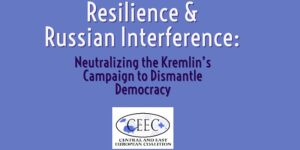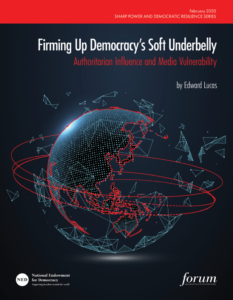 Innovation by authoritarian nations in the ‘grey zone’ is becoming one of the most serious challenges facing contemporary democracies. There are no easy ways to generate democratic resilience, but it is a crucial endeavor, notes Matthew Sussex, an adjunct associate professor at Griffith University.
Innovation by authoritarian nations in the ‘grey zone’ is becoming one of the most serious challenges facing contemporary democracies. There are no easy ways to generate democratic resilience, but it is a crucial endeavor, notes Matthew Sussex, an adjunct associate professor at Griffith University.
Democracy’s authoritarian rivals—chiefly China and Russia—play by different rules, have different ideas about vulnerabilities and strengths, and measure outcomes in broad wholistic rather than tight linear terms. Strategy is a long game and democracies must overcome their tendency to view conflict as an end-state with a precipitating cause, rather than an ongoing phenomenon, he writes for ASPI Strategist:

Cultivating democratic resilience
A common lament is that democracies lack freedom of action compared with authoritarian states in countering grey-zone activities because they’re bound by laws and norms. But assuming that the West’s challengers would forever be content to play by those laws and norms too, rather than sidestepping, adapting or ignoring them, remains a glaring oversight. Democracies must be flexible and adaptive.
The Sharp Power and Democratic Resilience series from the NED’s International Forum contextualizes sharp power, inventories key authoritarian efforts and domains, and illuminates ideas for nongovernmental action essential to cultivating democratic resilience.
For democracies to successfully insulate themselves from cyber-enabled information warfare, attacks on critical infrastructure, attempts to undermine and fragment their societies, and efforts to marginalize them from their allies requires a whole-of-society effort, Sussex adds. Counter-hybrid fusion centers, net assessment capabilities and other long-range tools and methodologies will be critical to building knowledge about vulnerabilities, identifying threat vectors, and devising appropriate countermeasures. RTWT







